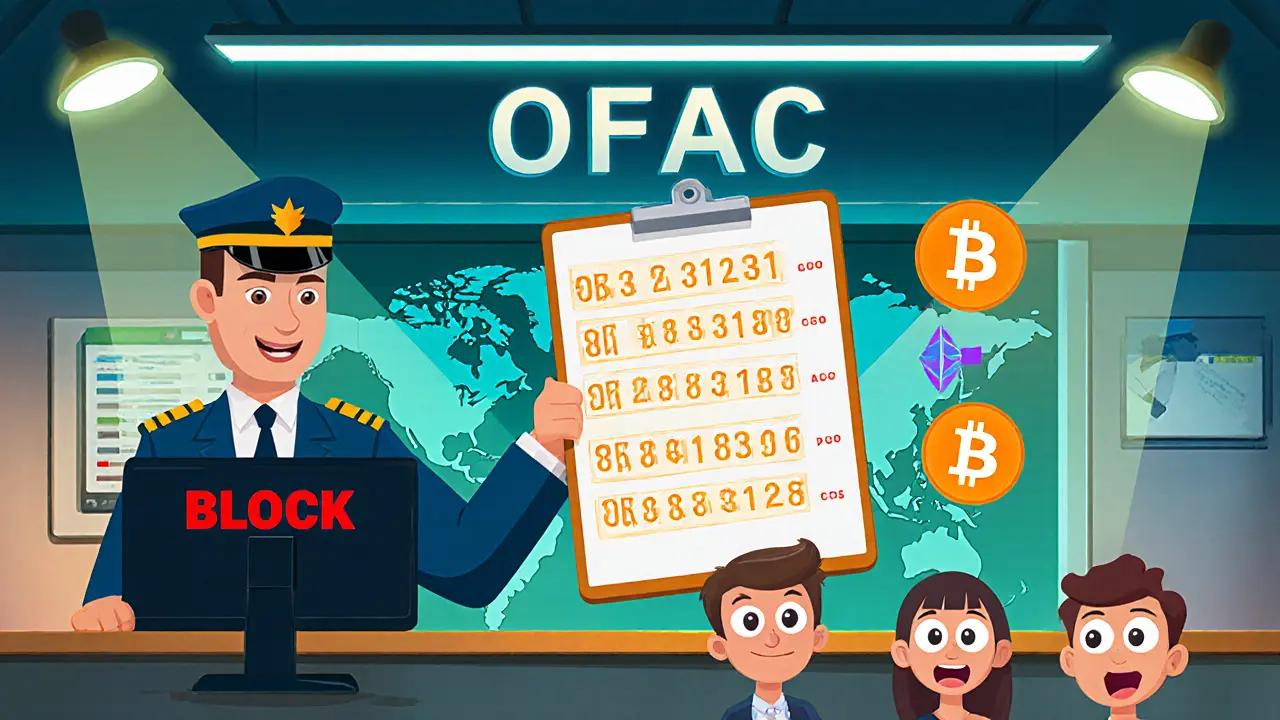OFAC Sanctions and Crypto: What You Need to Know
When working with OFAC sanctions, U.S. Treasury restrictions that target individuals, entities, and activities considered a threat to national security. Also known as Office of Foreign Assets Control measures, it directly limits access for crypto services, forces compliance upgrades, and can freeze digital assets, you quickly see why every crypto player cares. OFAC sanctions intersect with cryptocurrency, digital assets that rely on blockchain for secure, transparent transactions and the platforms that trade them. The rules also bind crypto exchanges, online marketplaces where users buy, sell, and swap tokens, compelling them to screen users, freeze wallets, and report suspicious activity. Finally, AML compliance, anti‑money‑laundering procedures required by regulators becomes the practical toolkit for meeting OFAC demands. Together, these entities shape a compliance ecosystem that can make or break a project’s ability to operate globally.
From a practical standpoint, OFAC sanctions push exchanges to adopt stricter Know‑Your‑Customer (KYC) checks, enhance transaction monitoring, and integrate watch‑list screening that flags sanctioned wallets instantly. In 2024, the U.S. added several Russian platforms, like Garantex and Grinex, to the sanctions list, effectively cutting off U.S. users and freezing any assets tied to those services. The ripple effect hits DeFi protocols, NFT marketplaces, and even wallet providers that inadvertently route funds through a prohibited address. Compliance teams now lean on real‑time blockchain analytics, on‑chain forensics, and automated compliance platforms to stay ahead. The cost of non‑compliance is steep: fines can reach millions, and projects risk being delisted from major aggregators, losing liquidity overnight. By aligning AML policies with OFAC’s ever‑evolving list, firms protect their users and preserve market credibility.
Below you’ll find a curated collection of articles that break down every angle of this topic. We cover exchange licensing in Germany, U.S. sanction impacts on Russian platforms, practical steps for AML program design, and real‑world case studies of how sanctions have reshaped token listings. Whether you’re a trader looking to avoid blocked services, a developer building a compliant DeFi app, or a regulator tracking the latest enforcement trends, the guides here give you actionable insight. Dive in to see how the crypto world adapts to OFAC sanctions and learn the best practices for staying on the right side of the law.

5
Nov
OFAC has targeted North Korean crypto networks that stole over $2.1 billion in 2025, using fake IT workers and global laundering schemes to fund weapons programs. Here's how the U.S. is fighting back.
Read More

21
Oct
Explore how OFAC sanctions block Iranian crypto traders from major exchanges, the compliance steps platforms must take, and the tactics used to evade restrictions.
Read More

